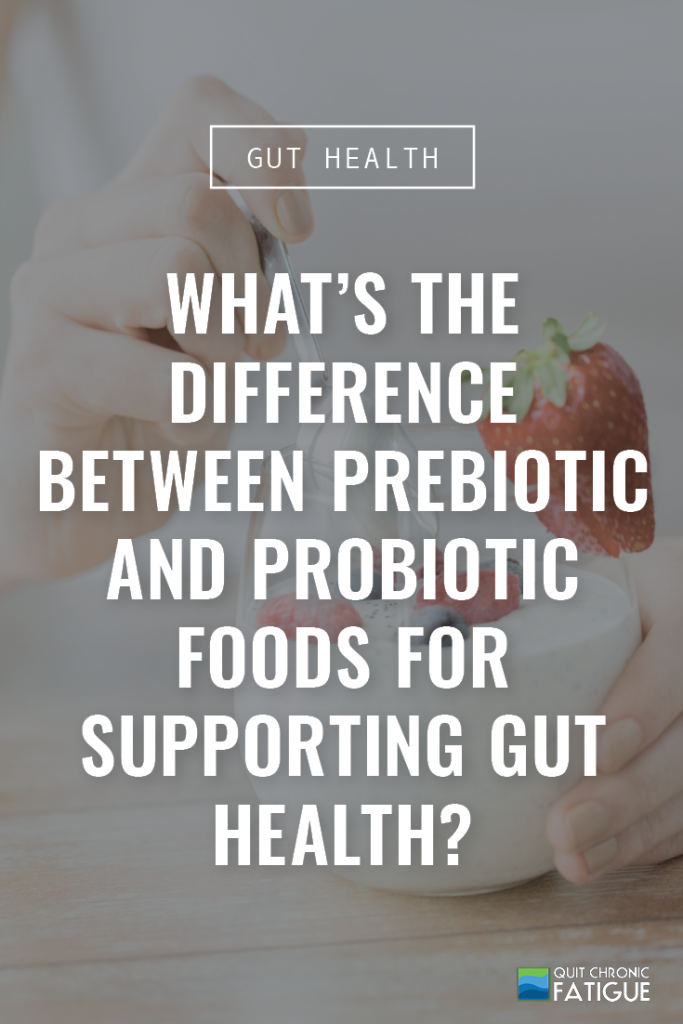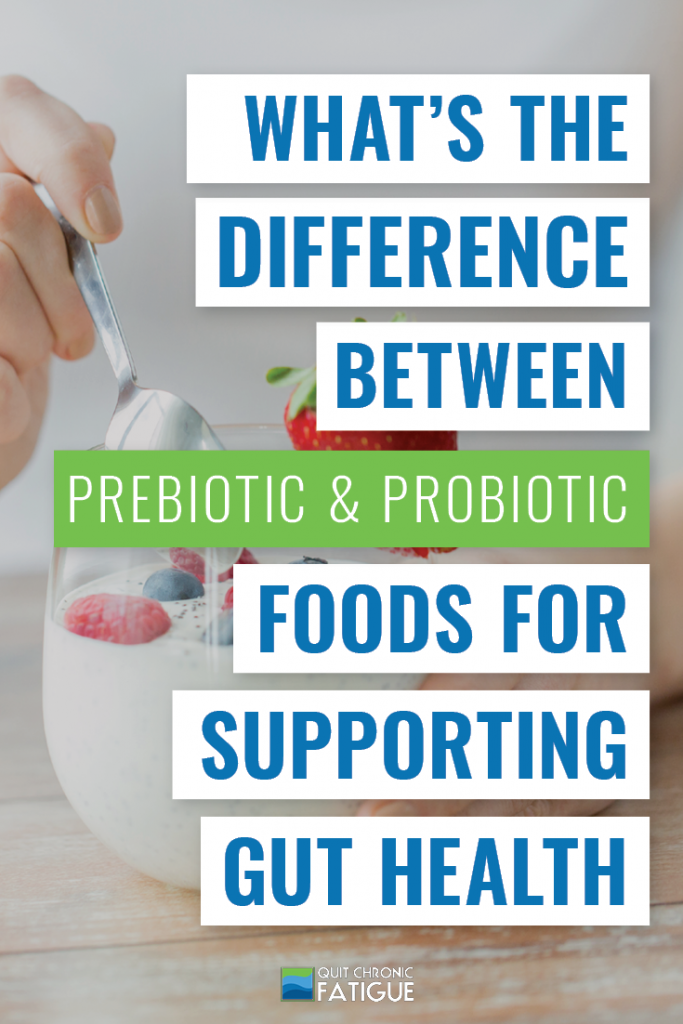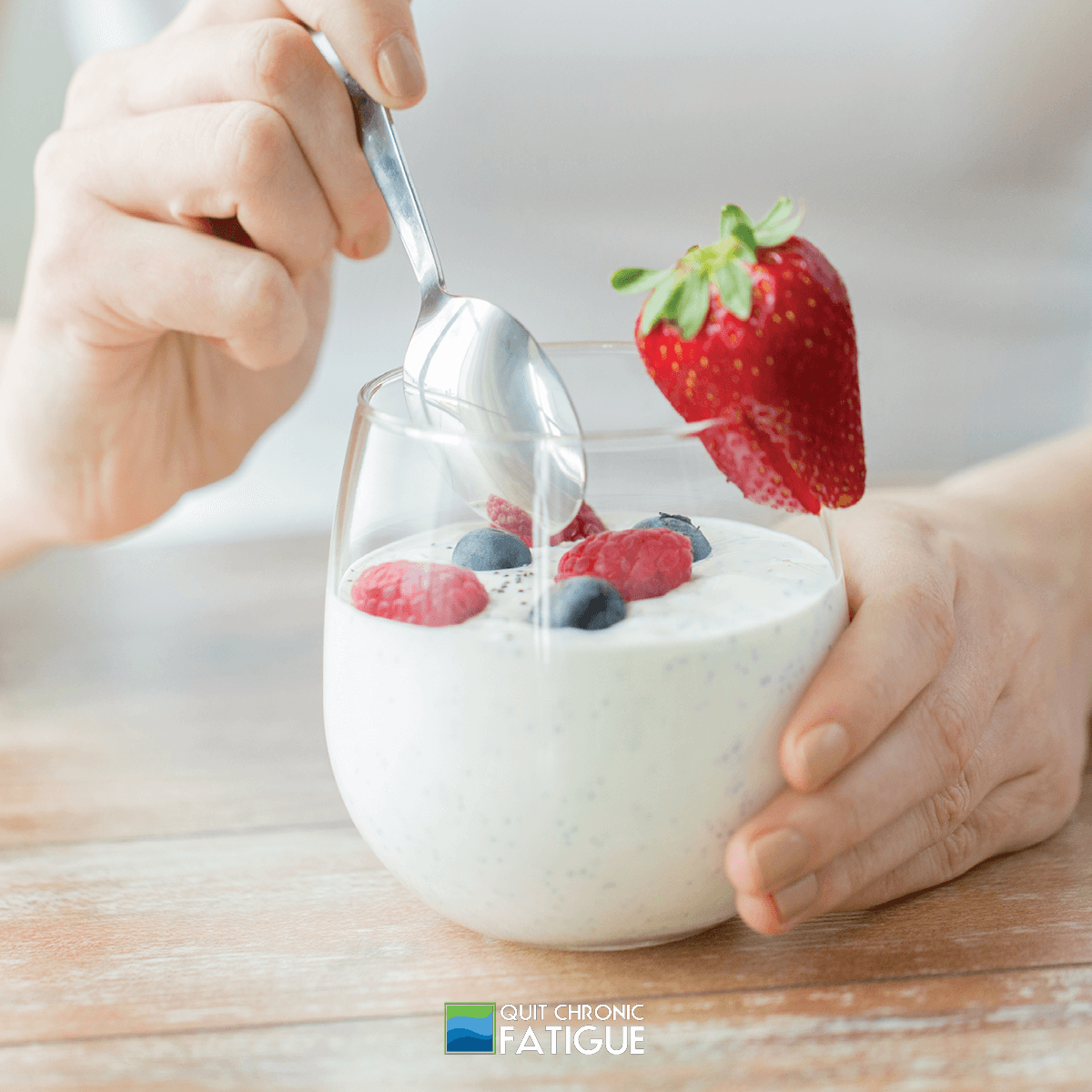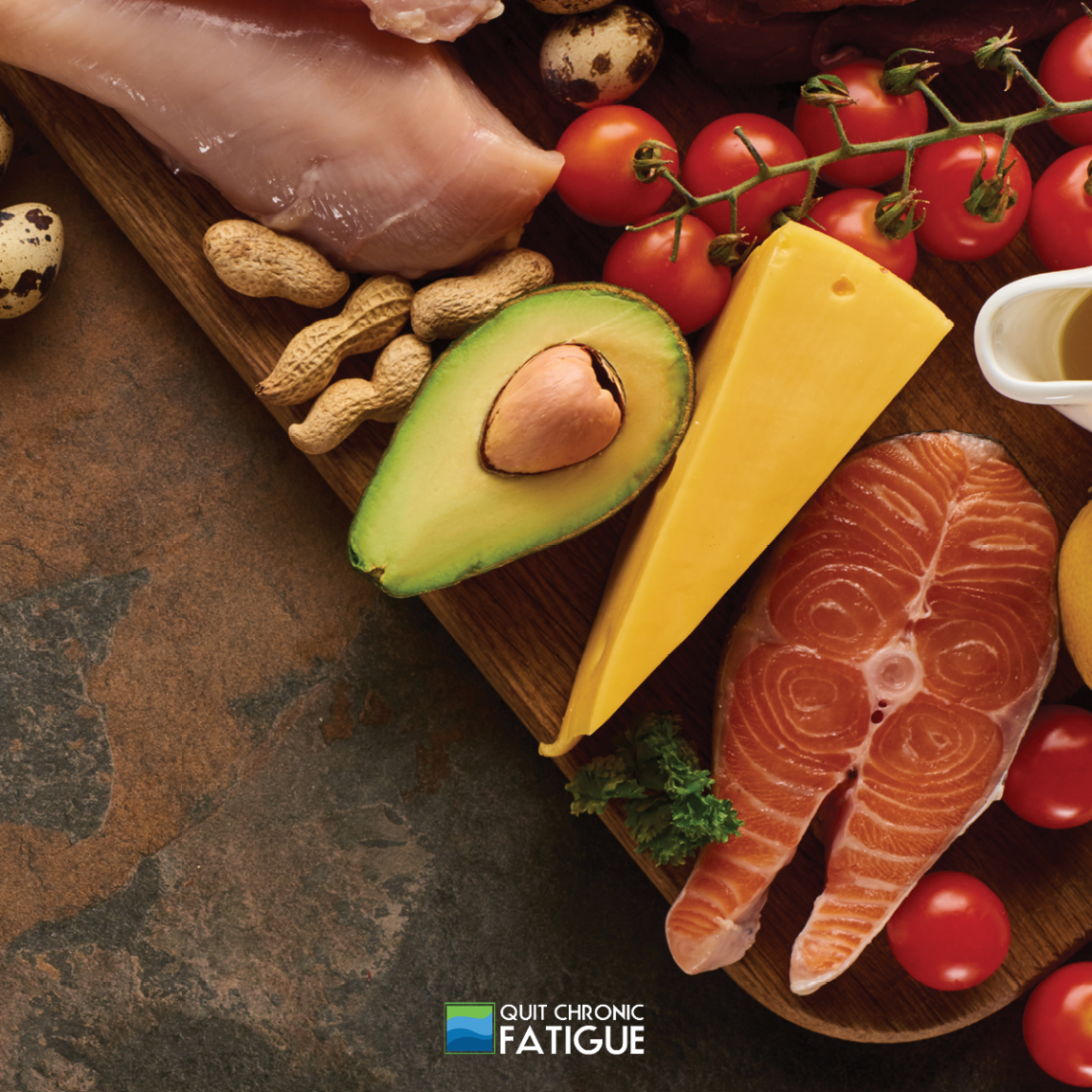Probiotics and prebiotics are the two powerhouses in developing a strong digestive system. By understanding how they work in food and in our bodies, you can learn more about how to support your own gut health. That’s why you need to know the difference between prebiotic and probiotic foods!
Humans interact with bacteria in our environment every day. There’s a misconception that all bacteria are bad bacteria. And we forget that we, as human beings, are made up of trillions of bacteria!
Over the past couple of years, research on gut health and the microbiome has increased in popularity. This research can help individuals learn more about how to take care of their gut health.

What’s The Difference Between Prebiotic and Probiotic Definitions?
While both probiotics and prebiotics reinforce your gut health, there is a difference in what they are and in the role they play.
What Are Probiotics?
Probiotics are live strains of bacteria that benefit our body. To be considered a probiotic, the bacteria must have known health benefits. The type of probiotic, how much of it there is, and how it’s delivered affect how well the bacteria will work in the body.
It’s important to know that not all bacteria are bad! Just because probiotics are live, does not mean that they are harmful to your body all of the time.
Common probiotics come from the Lactobacillus, Bifidobacterium, Streptococcus thermophilus, and E. coli families. When you look at a yogurt container, check out the ingredients on the back. You’ll most likely find some of these ingredients there!
Probiotics can:
- Decrease the risk of chronic diseases like type 2 diabetes and obesity
- Control gastrointestinal disorders
- Lessen the effects of allergic reactions
- Develop B-vitamins
- Improve vitamin and mineral absorption
- Decrease chronic inflammation
- Help eliminate cancer cells
- Enhance immunity
- Lessen the chances of constipation
- Decrease the chances of urinary tract infections
- Prevent diarrhea associated with antibiotic use
- Negate pathogenic bacteria
Related: How to Improve Your Gut Health with Probiotic Foods
What Are Prebiotics?
Prebiotics are defined as non-digestible parts of food, like fibers or polyphenols. We need prebiotics because they feed the existing bacteria that live in our digestive systems. This lets your bacteria support the digestive system the same way probiotics do.
To make this a little clearer, picture this image. Your colon is the soil, the probiotics are the seeds, and the prebiotics are the fertilizer. Prebiotics boost probiotic growth like fertilizers support seed growth.
Like in most cases too much of something in the body can be a bad thing. Too much prebiotics in the body can cause bloating or diarrhea.
Prebiotics can help:
- Lessen the risk of cancer
- Reduce LDL cholesterol
- Enhance immunity
- Improve calcium absorption
- Relieve peptic ulcers
- Control intestinal pH
- Decrease triglycerides
What’s The Difference Between Prebiotic and Probiotic Foods?
Different foods contain different probiotic and prebiotic ingredients. Here are some foods to try if you’re looking for ways to incorporate probiotics and prebiotics into your diet.
Probiotic Foods
Fermented foods are widely known for containing probiotics.
These include foods like:
- Yogurt
- Kefir
- Kombucha
- Tempeh
- Miso
- Sauerkraut
- Kimchi
All of those foods contain a high number of probiotics. Make sure to check that the labels of these foods say “live and active cultures.”
Remember that probiotics are living bacteria. You want to ensure that the bacteria are alive, even after processing! Fermented foods are not the only foods that contain probiotics, but they’re a great place to start.
There are a number of food manufacturers trying to add probiotics to non-fermented food. Watch out for these items. Their advertising can make these foods appear healthier than they actually are.
Prebiotic Foods
Because prebiotics are fibers, it would make sense that they are found in fiber-rich foods. It’s important to note that just because prebiotics are fiber, all fibers are not prebiotics.
Fruits, vegetables, and whole-grain foods are all great choices in supporting your digestive system.
Some prebiotic foods include:
- Bananas
- Apples
- Garlic
- Berries
- Asparagus
- Artichokes
- Beans
- Legumes
- Onions
- Oats
- Wheat Bran
- Leeks
- Cocoa
Like probiotics, food manufacturers can add prebiotics into foods like granola and fiber bars, and even ice cream.
In order to identify foods with prebiotics, you can look for names like galactooligosaccharides, cyclodextrins, lactulose, fructooligosaccharides, oligofructose, and inulin on their labels.
Important Things To Note About the Difference Between Prebiotic and Probiotic Foods
Within your gut health, there needs to be a balance between good bacteria and bad bacteria. Good bacteria help you fight off inflammation and support your body when battling an infection.
Both probiotics and prebiotics help keep your gut in top shape. But there is a difference between prebiotic and probiotic foods.
Probiotic foods are going to supplement your body with front-line fighters. Prebiotic foods provide the nutrients for those front liners.
Before you start taking any prebiotics or probiotics, you should talk to a medical professional to ensure that you’re making the right decisions on what you’re bringing into your body. But here are a few other things you should know about the difference between prebiotic and probiotic foods.
Probiotics should be kept at a cold temperature. Because they are live bacteria, the heat can actually kill them. Prebiotics can be kept at any temperature.
If you’re on antibiotics, you may want to talk to your doctor about taking prebiotics or probiotics. Antibiotics can kill the good bacteria in your digestive tract. You may be lacking in the bacteria you need.
While prebiotics and probiotics both support your digestive tract, there is a difference between prebiotic and probiotic foods. Talk to a medical professional to figure out what’s right for you. By understanding what your body needs, you can make sure that your gut is getting the bacteria it needs!





